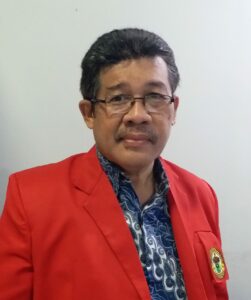The Metaphor of Eros Civilization on Sand Mining Group In Kemalang Klaten Central Java
Downloads
The reality of sand mining in Kemalang, Klaten Regency, in the middle of 2016, which added a reverse surplus, affected consumerism for the local community. Consumption increased surplus likens the Eros civilization told by Herbert Marcuse (1955). The Eros metaphor of civilization is Herbert Marcuse's critical thinking in response to the growth of capital and human population. Marcuse's paradigm of social reality is a criticism of the growth of doctrine. Masification of growth gives rise to competing sand miners who get wages that surplus can occur repression of natural ecosystems and social environments. Case study method to identify the preference of sand mining groups post-surplus wages. This article describes the social reality of the sand miner group which is likened to the metaphor of civilization, Eros, through the paradigm, psychoanalysis, Sigmund Freud. The combination of thinking Freud and Marcuse reminded that the role of growth as Eros had a dark side, namely Thanatos, namely the death instinct of self-death drive which contained fear, anger, and anxiety (Laplanche 1976). Related to field research choosing payment preferences higher than payments, the assessment of sand sighting groups increases passive income including medical costs for coverage related to suspended by alcohol, symptoms of HIV due to free sex without educational sex, the decision to seek financial credit without understand how to pay it off. This indicate the consumptive of sand mining group that improves financial knowledge, intelligence sexual emotion, expertise, the equality of education with the parable "Katak Dalam Tempurung". The pattern of knowledge isolation in sand mining groups against the marginalization of the environment.






